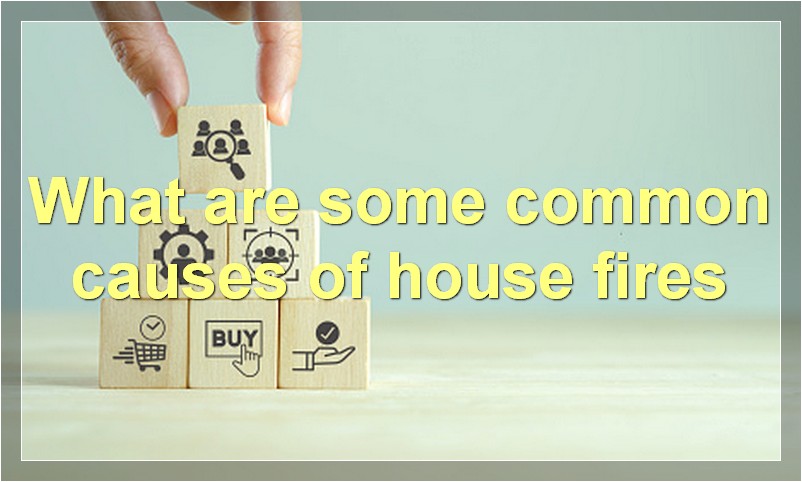“I know my shift starts in an hour, but I can’t help but feel anxious. I’m not sure if it’s the anticipation of another long day or the memories of the last time I was on duty. It could be both. But whatever the reason, the feeling is mutual among the guys in the station. We all know the drill too well. The radio blares, ‘All units respond to 10-75,’ and we’re out the door before you can even say ‘grilled cheese.'”
What are some common firefighter radio codes
When firefighters are responding to an emergency, they use a system of radio codes to communicate with one another. This system helps to ensure that everyone is on the same page and knows what is happening. Here are some of the most common firefighter radio codes:
Code 1: This code is used to indicate that there is an emergency and that firefighters are needed.
Code 2: This code is used to indicate that there is a fire.
Code 3: This code is used to indicate that there is a medical emergency.
Code 4: This code is used to indicate that the situation is under control.
Code 5: This code is used to indicate that there is a hazardous materials incident.
Code 6: This code is used to indicate that there is a search in progress.
Code 7: This code is used to indicate that the scene is secure.
Code 8: This code is used to indicate that there is a utility problem.
Code 9: This code is used to indicate that there is a communications problem.
What is the difference between a firehouse and a fire station
A firehouse and a fire station are both places where firefighters work, but there are some important differences between the two. A firehouse is a building that houses firefighters and their equipment. A fire station is a larger facility that includes a firehouse, as well as other important features like a training academy and a garage for fire trucks.
Firehouses are typically smaller than fire stations, and they only have space for a few firefighters to live and work. Firehouses usually have one or two stories, and they may have a garage where firefighters can keep their personal vehicles. Fire stations are much larger than firehouses, and they have several stories. Fire stations typically have several garages where fire trucks and other equipment are stored. In addition to housing firefighters, fire stations also have space for a training academy and other important facilities.
The size difference between firehouses and fire stations reflects the different roles that these two types of buildings play in the fire service. Firehouses are designed to be close to the communities that they serve, so that firefighters can quickly respond to emergencies. Fire stations are larger because they need to accommodate all of the different functions of the fire service, including training, storage, and maintenance.
How many firefighters are on duty at a typical firehouse
There are many different types of firehouses, each with a different number of firefighters on duty. The size and type of firehouse dictates the number of firefighters on duty. For example, a small, rural firehouse might only have three or four firefighters on duty at a time, while a large, urban firehouse could have upwards of 10 firefighters on duty. The amount of call volume also affects the number of firefighters on duty. If a firehouse is located in an area with a high volume of calls, they will likely have more firefighters on duty to ensure they can respond to all the calls.
What shifts do firefighters typically work
There are three shifts in a firehouse: day shift, night shift, and a 24-hour shift. The day shift is from 6am to 6pm, the night shift is from 6pm to 6am, and the 24-hour shift is from 6am to 6am the following day.
What is a day in the life of a firefighter like
A typical day in the life of a firefighter might involve responding to emergency calls, providing medical attention, extinguishing fires, and conducting investigations. Firefighters also spend time performing maintenance on equipment and training to keep their skills sharp. During down time, firefighters may eat and sleep or relax with fellow crew members.
What are some common causes of house fires
One of the most common causes of house fires is faulty electrical wiring. Over time, wires can become frayed or damaged, which can cause them to spark and start a fire. Another common cause of house fires is leaving candles or other open flames unattended. If a candle is knocked over or a pot of boiling water is left on the stove, it can quickly start a fire that will spread throughout the home.
Another common cause of house fires is smoking indoors. Cigarettes can easily start a fire if they are not properly extinguished, and even if they are put out correctly, smokers should always smoke outside to avoid the risk of starting a fire. Lastly, grease buildup in the kitchen is also a common cause of housefires. When cooking with oil or other grease, it’s important to clean up any spills immediately and to keep the area around the stove free from clutter.
How can I prevent my home from catching on fire
There are many things you can do to prevent your home from catching on fire. Here are some tips:
1. Keep your stove and oven clean. If there is a build-up of grease and dirt, it can easily catch fire.
2. Don’t leave candles unattended. If you’re going to leave the room, make sure to blow them out first.
3. Don’t overload electrical outlets. If you have too many devices plugged into one outlet, it can cause a fire.
4. Keep flammable liquids away from heat sources. This includes things like gasoline and cleaning products.
5. Have a fire extinguisher handy in case of an emergency.
By following these simple tips, you can help keep your home safe from fires.
What should I do if my clothes catch on fire
If your clothes catch on fire, it is important to act quickly and not panic. You should stop, drop, and roll to smother the flames. If you have a fire extinguisher nearby, you can also use that to put out the fire. It is also important to remove any clothing that is on fire, as it will continue to burn. Once the fire is out, you should seek medical attention for any burns.
How can I safely escape a house fire
When it comes to escaping a house fire, timing is everything. You need to act fast and be decisive in order to make it out alive. Here are some tips on how to safely escape a house fire:
1. If you can, try to stay low to the ground. This will help you avoid smoke inhalation.
2. Move quickly, but don’t run. You don’t want to create a panic and make things worse.
3. If possible, cover your nose and mouth with a wet cloth to help filter the air.
4. If you see flames or smoke blocking your exit, do not try to go through it. Find another way out.
5. Once you’re outside, stay low to the ground and move away from the building as quickly as possible.
By following these tips, you’ll increase your chances of safely escaping a house fire. Remember, time is of the essence so don’t waste any time if you’re caught in a fire!
What should I do if I see a fire in my neighborhood
If you see a fire in your neighborhood, you should call the fire department immediately. Do not try to put the fire out yourself. Firefighters are trained to deal with fires and will be able to put it out quickly and efficiently.



